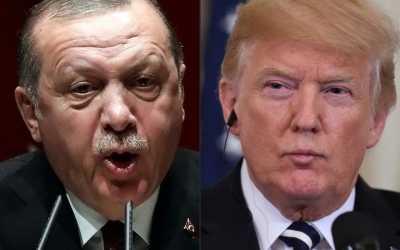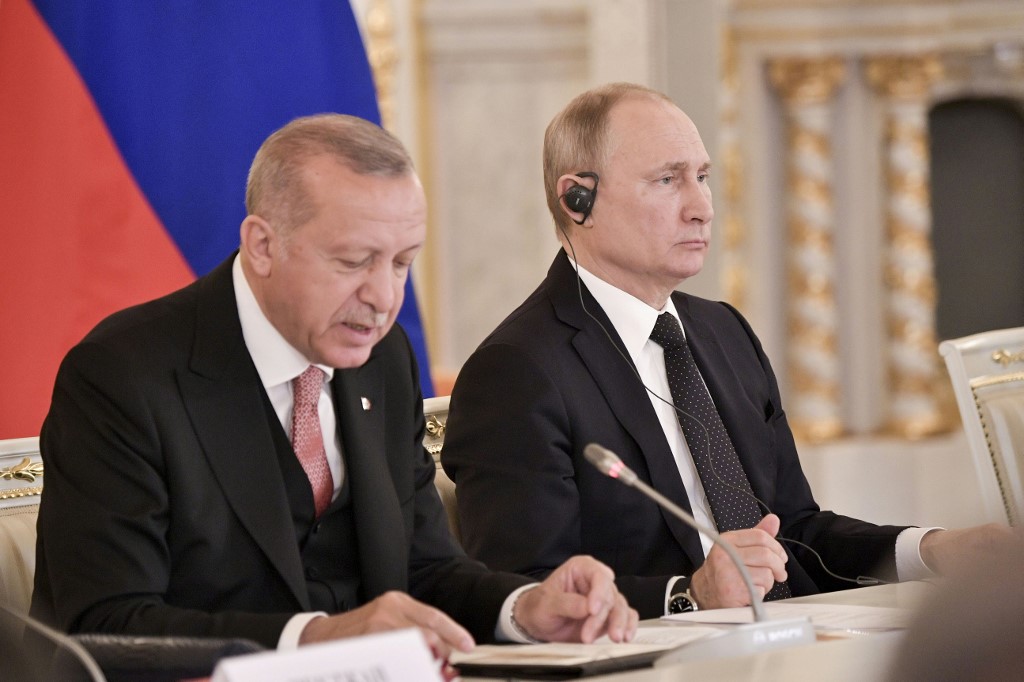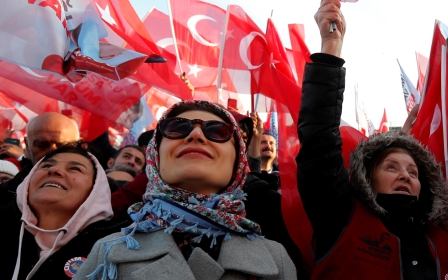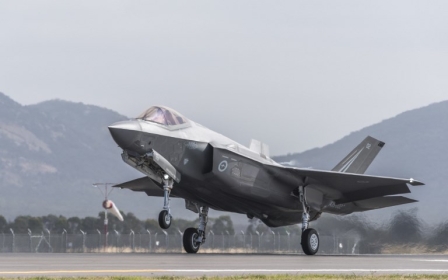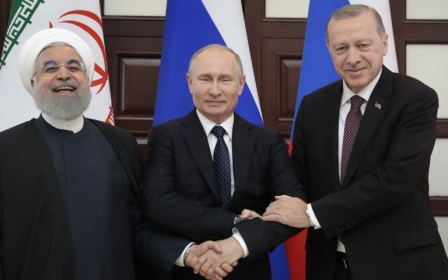Turkey raises stakes in S-400 drama with talk of second Russian purchase
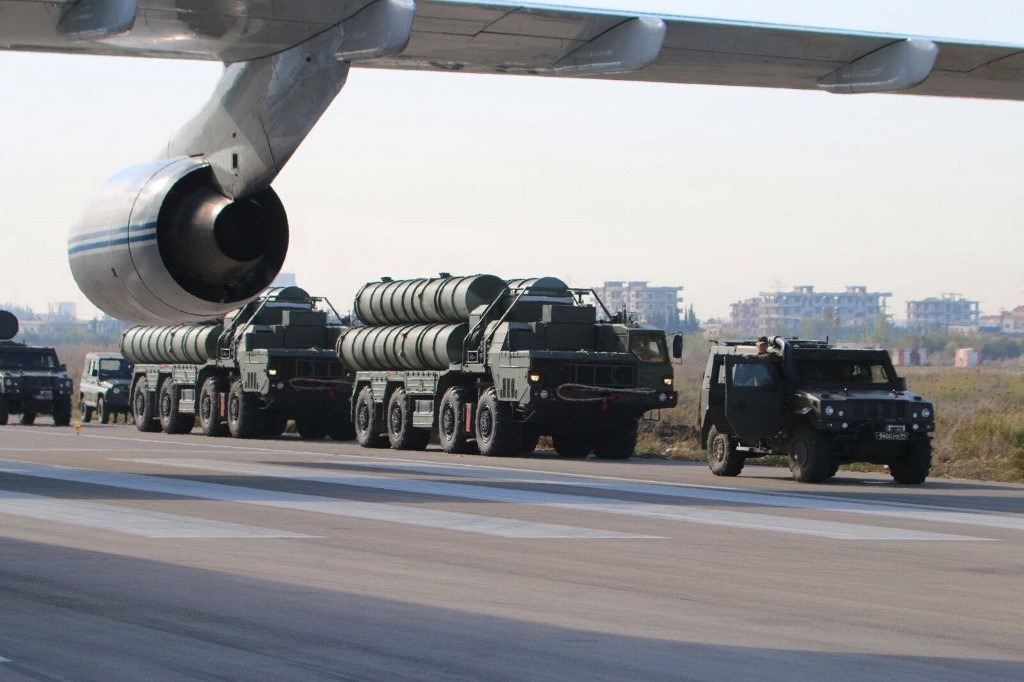
Turkey has vowed to maintain close ties with Russia and potentially buy even more S-400 missile defence systems, a day after US senators threatened to slap Ankara with sanctions if the country followed through with its purchase from Moscow.
If they don’t sell the Patriots, we could buy a second S-400 system
- Turkish Foreign Minister Mevlut Cavusoglu
Turkish foreign minister Mevlut Cavusoglu on Wednesday said that Turkey "urgently" needs the weapons systems and has yet to receive confirmation from the US about whether it will sell Turkey its rival Patriot system.
“We need S-400s urgently. We don’t pay this amount of money for a cosmetic product. The US doesn’t give us assurances that they [will] sell Patriots to us. I asked [US Secretary of State Mike] Pompeo, his response was ‘no’," said Cavusoglu in a televised interview.
"If they don’t sell the Patriots, we could buy a second S-400 system or another one from someone else."
Later in the day, Turkish President Recep Tayyip Erdogan told reporters the Russian defence systems could even be delivered earlier than planned.
New MEE newsletter: Jerusalem Dispatch
Sign up to get the latest insights and analysis on Israel-Palestine, alongside Turkey Unpacked and other MEE newsletters
Buying time
In September 2017, Turkey decided to buy Russia’s S-400 missile defense system, despite the opposition of its NATO allies - and concerns from US lawmakers that Russia could collect intelligence on American F-35 technology with the systems.
This March, Turkish officials announced that the US had made a second Patriot offer to meet Turkish demands. But a Turkish official, who spoke to Middle East Eye on condition of anonymity, said that the second offer was only made in order to buy a couple of weeks for both sides to figure out a solution.
Analysts believe Washington is unlikely to meet Turkey’s two core demands - foreign credit and technology transfer. Raytheon, the private company that makes the Patriot, isn't willing to share its know-how and the Trump administration has been reluctant to provide foreign credits or loans to any parties other than close partners like Israel and Egypt.
Cavusoglu, who was in Washington last week, claimed that he had been able to convince some senators to support Turkey's purchase of the S-400 after telling them that Ankara was buying the systems after the US refused to provide a similar deal. "They didn’t know," he said on TV.
However, after his departure from Washington, the chairmen and ranking members of the US Senate Armed Services and Foreign Relations committees wrote an op-ed in the New York Times contradicting Cavusoglu's version of events.
Senators said the US has been offering to sell Patriots to Turkey since at least 2012 and are now asking Turkey to choose between F-35s and S-400s.
"By the end of the year, Turkey will have either F-35 advanced fighter aircraft on its soil or a Russian S-400 surface-to-air missile defence system. It will not have both," they wrote.
“Purchasing the S-400 would create an unacceptable risk because its radar system could enable the Russian military to figure out how the F-35 operates."
Senators said abandoning the F-35 programme would result in the loss of $1.25bn which Turkey had already invested and that Turkish companies which produce parts for the programme will also lose business.
If Turkey accepts the delivery of the S-400, the US will impose sanctions which "will hit Turkey’s economy hard — rattling international markets, scaring away foreign direct investment and crippling Turkey’s aerospace and defense industry," they wrote.
Cavusoglu said Turkey will seek F-35 alternatives, one of which could be the Russian-made Sukhoi Su-57.
Russia, which signed a $2.5bn deal with Turkey in 2017 for a S-400 package, welcomed Cavusoglu's statements suggesting further sales with a presidential spokesman reportedly saying Russia was open to a deal.
"Russia is looking for opportunities to increase military-technical cooperation with Turkey. This is totally normal,” Dmitry Peskov, the spokesman, was quoted as saying in Turkish media reports.
Middle East Eye delivers independent and unrivalled coverage and analysis of the Middle East, North Africa and beyond. To learn more about republishing this content and the associated fees, please fill out this form. More about MEE can be found here.


